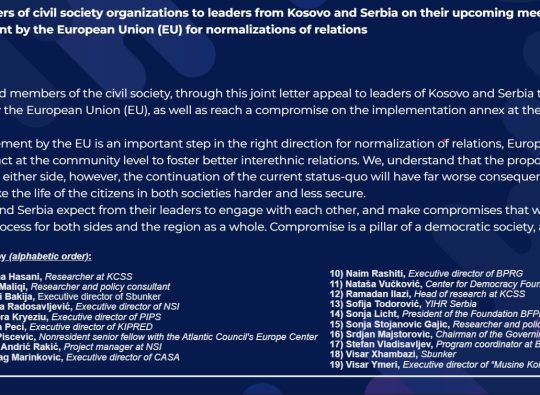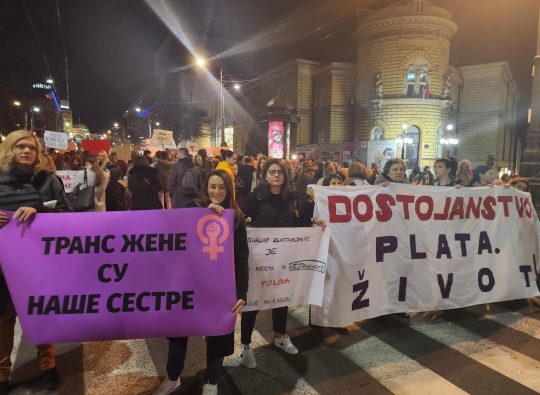Such actions of the police raise suspicions of politically motivated and legally unjustified detentions prohibited by both domestic legislation and international human rights standards by which Serbia is bound such as European Convention on Human Rights.
In light of recent developments, the unjustified detention of Kosovo police officers and similar one-sided actions directly undermine normalization process while deepening the gap between the two societies. This particular action took place shortly after the Parliamentary Assembly of the Council of Europe’s endorsement of Kosovo’s bid for membership. The timing of these arrests is notably proximate to a declaration by Serbian President Aleksandar Vučić, who, just three days earlier, had stated at a military event in Belgrade on April 14th: “Anyone who undermines Serbia’s constitutional order, whether through protests or demonstrations, will be held accountable. This includes all Albanians involved.” This statement and the subsequent arrests underscore the tensions and the retaliatory measures being implemented.
Both YIHR Serbia and YIHR Kosovo urge the governments of Serbia and Kosovo to address these issues through dialogue, respecting previously signed agreements such as the agreement for the freedom of movement, which was clearly violated in this instance by Serbia. Preventing Kosovo citizens from freely traveling through and their detention within Serbia is unacceptable, as it is unacceptable the lack of political will by both Serbia and Kosovo to fully implement the latest Ohrid Agreement (2023) and other already reached agreements in the process of normalisation.
The detention of Kosovo police officers on April 17, including Deputy Director Dejan Janković, is particularly disconcerting in light of the June 2023 abduction of three additional Kosovo officers. This incident saw three Kosovo police officers subsequently charged by the Higher Public Prosecutor’s Office in Kraljevo for alleged illegal production, possession, carrying, and trafficking of weapons and explosive materials. However, the investigation into the abduction itself remains outstanding, with crucial details still unclear, such as the identities of the perpetrators and the manner in which these officers were forcibly removed from Kosovo and transported to Serbia. This lack of clarity and the serious nature of these incidents add a layer of complexity and tension to the ongoing regional relations.
In this regard, statements of Ana Brnabić, President of the National Assembly of Serbia expressing expectation of international praise for the Serbian Police’s actions on April the 17th is inappropriate and does not serve the spirit of normalization of relations between the two countries.












